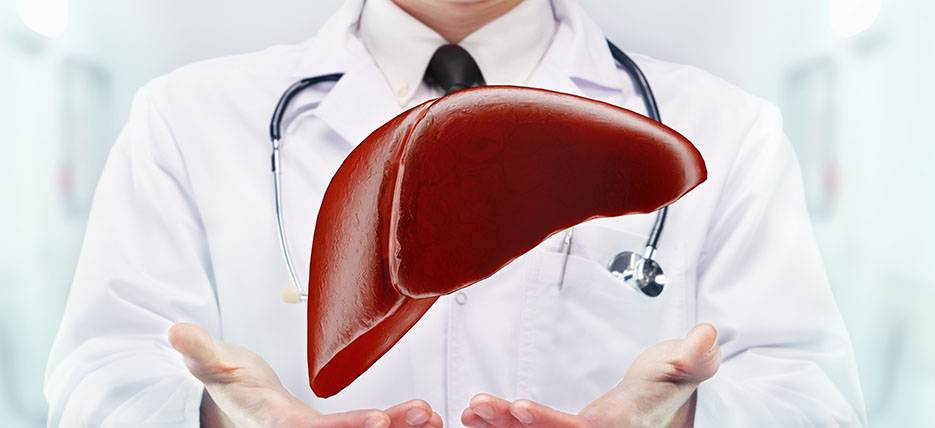Your liver fights for your health. Join it!
- Geplaatst op
- 0

Learn why your liver is the most vulnerable organ in your body.
Why is the liver so important?
The liver is a large organ in our bodies, located just below the diaphragm. Its main purpose is to filter the blood coming from the digestive system, with all nutrients, medications and toxins absorbed from it, process the waste, and then release clean blood into the body, enriched with useful elements to contribute to vital bodily functions. It is responsible for hundreds of processes including:
- Storing glycogen – an energy reserve, which when needed is broken down into glucose and released into the body
- Production of bile, stored in the gallbladder, and released in the intestine to digest fats
- Decomposition of erythrocytes, and hence regulating the blood cell cycle
- Synthesis of blood plasma proteins, responsible for the transportation of useful substances through the body – lipids, vitamins and hormones
- Detoxification by neutralizing free radicals
- Regulation of the synthesis and breakdown of small and complex molecules, therefore producing useful chemicals and elements for the body
What are the greatest dangers for your liver?
Because of its vital role for our health, any condition which prevents the liver from functioning to its full potential can be very harmful.
Obesity
Being severely overweight increases the risk of developing a fatty liver, even in non-drinkers. When fat builds up in the liver, its cells are prevented from their normal behavior which hinders all liver functions. It is also a precondition for other liver disorders.
Hepatitis
Hepatitis (from the Greek word for liver – Hepatic) is a liver disease characterized by inflammatory cells in the liver tissue. It may be acute or chronic. It could be viral, or caused by predisposition of the body due to other (autoimmune) diseases, medications or intoxication, including from alcohol. Hepatitis, when acute, may be self-limiting – which means self healing. Or, it may become chronic, constantly damaging the liver cells, eventually leading to liver failure.
Anabolic steroids
AS are substances, used for their power to enhance one’s fitness and performance. Their abuse has lead to multiple users being admitted to hospital for various diseases, including decreased hepatic excretory function and hepatic peliosis. The latter is essentially cystic degeneration of the tissue.
Alcohol abuse
Overconsumption of alcohol is particularly damaging to the liver, because of its role as a detoxification agent and a first barrier against the substance’s damage to the body.
Smoking
Research shows smokers are more likely to suffer from liver disease. Quitting improves your chances to preserve the health of your liver. However, some effects will persevere, regardless of your positive life change.
Cirrhosis
It is a condition that builds up over time after long term liver damage. In that sense all conditions described above increase one’s likelihood to develop cirrhosis. The disorder is characterized by the replacement of functioning liver tissue by scar tissue which effectively prevents the organ from performing its functions.
Aflatoxins
Aflatoxins are cancerogens, produced by fungi built up in peanuts, ground nuts, soybeans, corn, rice and wheat, when not packaged and stored properly. Research indicates a particularly strong link to liver cancer.
Cancer
Because of the liver’s essential function – to filter the body’s blood – it is the one organ most susceptible to bad cancer cells from the bloodstream. It may be affected both by liver cancer and cancer spreading from other affected organs or systems. All conditions described above increase to predisposition to cancer.
What does your liver need?
As you can see many of the conditions that affect the liver are built up over time. The best strategy you can employ to prevent serious liver conditions is prevention.
- Make sure your weight is in check
- Be careful with toxic substances – alcohol, recreational drugs, and others
- Have your regular visits to the doctor and report any persistent or strong symptoms
- When having bloodwork done, make sure you are being screened for hepatitis
Currently there is no good long term cure for liver failure when it has already occurred. Liver dialysis works short-term, however, transplantation is the only known successful long-term treatment. And it is not risk free.
In addition to leading a healthy life, or in your journey getting there, you can take supplements to both protect your liver and enhance its functions to clean your body and improving your overall health.
Keep liver cells working
Polyenylphosphatidylcholine, or PPC, a substance derived from soybeans, is discovered to improve the condition of the cell membranes. It is particularly helpful to the liver, whose cells need to be highly interactive with the blood circulating around them, in order to extract and process the waste and enrich the blood plasma with enzymes, lipids and hormones.
Improve your digestion together with your liver
Artichoke leaf extract is a priceless source of chlorogenic acid and cynarin.
The liver absorbs sugars from the food intake in the form of glycogen. The chlorogenic acid affects the level of glucose released into the body and hence regulates your body weight.
Cynarin, on the other hand, benefits your digestion and helps regulate the level of cholesterol.
The complex of the two effectively strengthen your liver against stress caused by processing fatty foods and foods rich in carbohydrates.
Help your liver detoxify your body
There is a Liver efficiency formula of two molecular energizers proven to increase the body detoxification, showing significant improvement after only four weeks.
Schisandra chinensis regulates the levels of glutathione, and therefore promoting the liver’s detoxification function.
Whereas Extramel, a substance rich in superoxide dismutase, a powerful free radical neutralizer.
You have to take steps to decrease the stress on your liver to filter your organism from harmful substances. With that you protect it from inflammation and disease.


Reacties
Wees de eerste om te reageren...